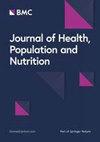A comparative systematic review of risk factors, prevalence, and challenges contributing to non-communicable diseases in South Asia, Africa, and Caribbeans
IF 2.4
3区 医学
Q3 ENVIRONMENTAL SCIENCES
引用次数: 0
Abstract
Non-communicable diseases (NCDs) are a global epidemic challenging global public health authorities while imposing a heavy burden on healthcare systems and economies. To explore and compare the prevalence of NCDs in South Asia, the Caribbean, and non-sub-Saharan Africa, aiming to identify both commonalities and differences contributing to the NCD epidemic in these areas while investigating potential recommendations addressing the NCD epidemic. A comprehensive search of relevant literature was carried out to identify and appraise published articles systematically using the Cochrane Library, Ovid, Google Scholar, PubMed, Science Direct, and Web of Science search engines between 2010 and 2023. A total of 50 articles fell within the inclusion criteria. Numerous geographical variables, such as lifestyle factors, socio-economic issues, social awareness, and the calibre of the local healthcare system, influence both the prevalence and treatment of NCDs. The NCDs contributors in the Caribbean include physical inactivity, poor fruit and vegetable intake, a sedentary lifestyle, and smoking, among others. While for South Asia, these were: insufficient societal awareness of NCDs, poverty, urbanization, industrialization, and inadequate regulation implementation in South Asia. Malnutrition, inactivity, alcohol misuse, lack of medical care, and low budgets are responsible for increasing NCD cases in Africa. Premature mortality from NCDs can be avoided using efficient treatments that reduce risk factor exposure for individuals and populations. Proper planning, implementation, monitoring, training, and research on risk factors and challenges of NCDs would significantly combat the situation in these regions.对南亚、非洲和加勒比地区导致非传染性疾病的风险因素、流行率和挑战的比较性系统审查
非传染性疾病 (NCD) 是一种全球性流行病,对全球公共卫生当局构成挑战,同时也给医疗保健系统和经济带来沉重负担。探讨和比较南亚、加勒比海和非撒哈拉以南非洲地区的非传染性疾病流行情况,旨在找出这些地区非传染性疾病流行的共性和差异,同时调查应对非传染性疾病流行的潜在建议。我们使用 Cochrane Library、Ovid、Google Scholar、PubMed、Science Direct 和 Web of Science 等搜索引擎对相关文献进行了全面检索,系统地识别和评估了 2010 年至 2023 年期间发表的文章。共有 50 篇文章符合纳入标准。许多地理变量,如生活方式因素、社会经济问题、社会意识和当地医疗保健系统的水平,都会影响非传染性疾病的流行和治疗。加勒比地区的非传染性疾病诱因包括缺乏运动、水果和蔬菜摄入量少、久坐不动的生活方式以及吸烟等。而在南亚,这些因素包括:社会对非传染性疾病的认识不足、贫困、城市化、工业化以及南亚法规执行不力。营养不良、不运动、酗酒、缺乏医疗保健和预算低是非洲非传染性疾病病例增加的原因。通过有效的治疗,减少个人和人群接触风险因素的机会,可以避免非传染性疾病导致的过早死亡。对非传染性疾病的风险因素和挑战进行适当的规划、实施、监测、培训和研究,将大大改善这些地区的状况。
本文章由计算机程序翻译,如有差异,请以英文原文为准。
求助全文
约1分钟内获得全文
求助全文
来源期刊

Journal of Health, Population, and Nutrition
医学-公共卫生、环境卫生与职业卫生
CiteScore
2.20
自引率
0.00%
发文量
49
审稿时长
6 months
期刊介绍:
Journal of Health, Population and Nutrition brings together research on all aspects of issues related to population, nutrition and health. The journal publishes articles across a broad range of topics including global health, maternal and child health, nutrition, common illnesses and determinants of population health.
 求助内容:
求助内容: 应助结果提醒方式:
应助结果提醒方式:


